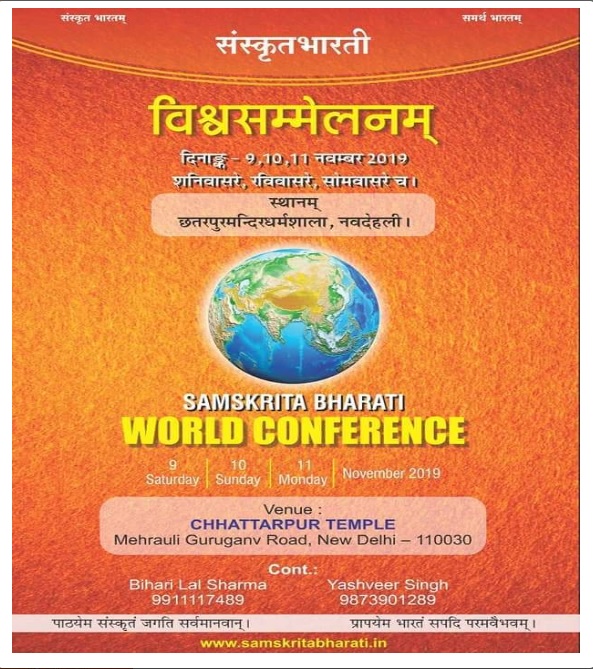The National Sanskrit Conference 'Sanskrit Samunmesah' is being organised in Tirupati from July 12 to 14. About 60 prominent writers and scholars of Sanskrit are participating in this conference. Organised at the National Sanskrit University, Tirupati, Andhra Pradesh, the conference is being held under the joint aegis of Sahitya Akademi, the union Ministry of Culture, the National Sanskrit University, Tirupati, and the Sanskriti Foundation, Mysore.
Sahitya Akademi Secretary Dr. K.K. Srinivasa Rao said on Tuesday that the inaugural session of the conference would start at 10 a.m. The Chief Guest for the inaugural session is Kerala Governor Arif Mohammed Khan. As a special guest in this session, Vice Chancellor of National Sanskrit University N. Gopalaswami, Additional Secretary and Financial Advisor, Ministry of Culture Ranjana Chopra, Joint Secretary, Ministry of Culture Uma Nanduri, and Executive Officer of Tirumala Tirupati Devasthanam AV Dharma Reddy. The opening statement will be given by GSR Krishnamurthy, Vice-Chancellor of Rashtriya Sanskrit Vishwavidyalaya, and the closing statement will be given by Kumud Sharma, Vice President of Sahitya Akademi.
In this three-day convention, there will be various sessions on Ashtavadhanam, Sanskrit and Yoga, Sanskrit and Indian Music, Sanskrit and Dance, and Sanskrit plays, apart from Kavi Sammelan, story reading by students, sessions focused on Sunderkand of the Ramayana, and various presentations. To make this conference more useful and meaningful, many exhibitions and the Sanskrit Shobha Yatra will also be organised.
Dr. Srinivasa Rao said that the main objective of this conference to be held under the Amrit Mahotsav of Independence is to take Sanskrit to every household and to increase public awareness towards Sanskrit. He said that this langauge is not only a priceless heritage of ancient India's intellectual achievements, but it has also enriched Indian art and culture.
Though Sanskrit was the lingua franca of the country for a long time, it became limited to the language of education and scholars due to various reasons. The union Ministry of Culture and Sahitya Akademi is planning to organise a series of programmes to improve this limited form of Sanskrit and take its literature to the masses.




















